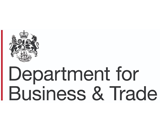Citizens Advice warns consumers of ‘trial’ offers
People are losing £141 on average after signing up for a ‘trial’ offer only to later find money has unexpectedly been withdrawn from their bank account, new research from Citizens Advice finds.
The bulk of sign-ups happen online (77%) where businesses can hide information, through the use of pop-ups or smaller font for example, making it easy for people to miss terms and conditions. And nearly a quarter (21%) of people spot an ad for a ‘trial’ on social media or online marketplace, like Facebook and eBay.
This dubious practice – also called a subscription trap – involves customers giving their bank details while obtaining a free product or trial of a service to then find large amounts deducted from their account. Some businesses will either blindside people with lengthy and jargon-filled contracts, or won’t be upfront about the full terms and conditions.
Even when consumers do realise they have unknowingly signed up for recurring payments, more than a quarter (29%) who contacted the consumer service said the company refused to cancel the subscription.
As part of National Consumer Week – a campaign to help people understand their consumer rights which launched on Cyber Monday – Citizens Advice is warning about the pitfalls of subscription traps and sharing tips on how to stop unauthorised payments.
People who contacted the Consumer Service said they felt they were tricked into giving away their details, with companies often asking a customer to pay a nominal amount for shipping a product but then later charging exponentially higher amounts.
One person lost £989 through a subscription trap after signing up to a dietary supplement trial for which they only had to pay postage and packaging. He contacted the company who told him he should have cancelled the trial after 14 days, despite receiving no notification of this.
Another person who contacted the Consumer Service lost £350 over the course of six months after signing up for a beauty product trial costing £4.95. Their bank has since agreed to block future payments to the company.
Once people realise money has been taken from their account, they can find it tough to cancel these recurring payments – also called a Continuous Payment Authority – or to get their money back.
Despite banks being able to cancel a Continuous Payment Authority, only half (49%) of those who contacted the Consumer Service had tried this route.
Gillian Guy, Chief Executive of Citizens Advice, said:
“Unfortunately we continue to see people losing of hundreds of pounds through subscription traps, almost exclusively online. As part of National Consumer Week, we are urging people to beware of offers that sound too good to be true so they are not tricked into signing up to recurring payments.
“However, it’s equally important that companies are transparent about their terms and conditions and banks act quickly to block these recurring payments when a customer requests them to do so.”
Tips to avoid and stop subscription traps
Spot a subscription trap by looking out for offers which sound too good to be true, like a free or discounted trial. Also be wary of lengthy and complicated contracts or pre-ticked terms and condition boxes, particularly online.
Check your bank statement regularly so that you can spot any unexpected payments and take action to stop them.
Go straight to your bank to stop a subscription trap. You don’t need to get permission from the company and can cancel with immediate effect.
Get a refund for any payments taken after you’ve notified your bank about a subscription trap. Follow their complaints procedure if you don’t get your money back, otherwise contact the Financial Ombudsman Service.







